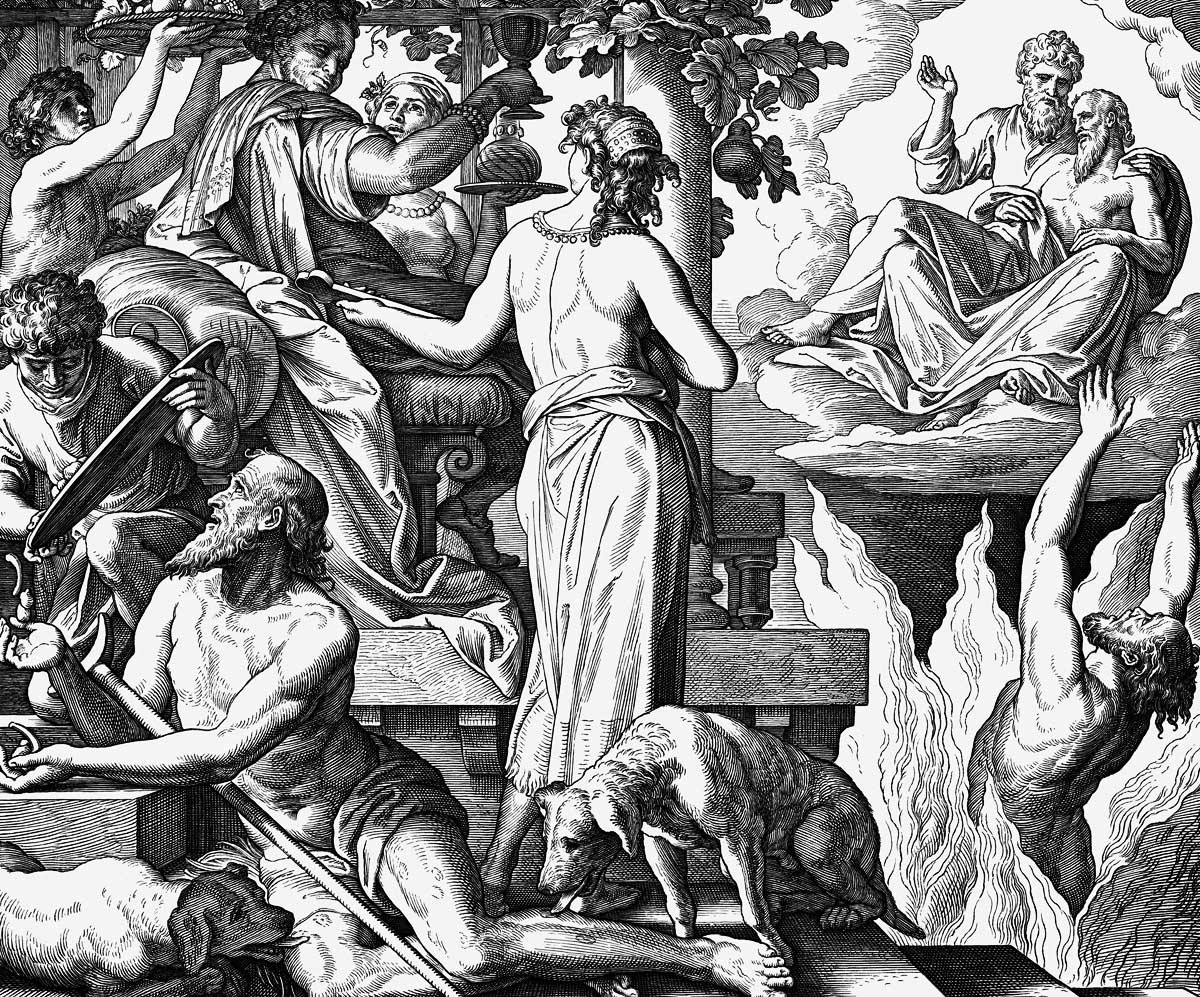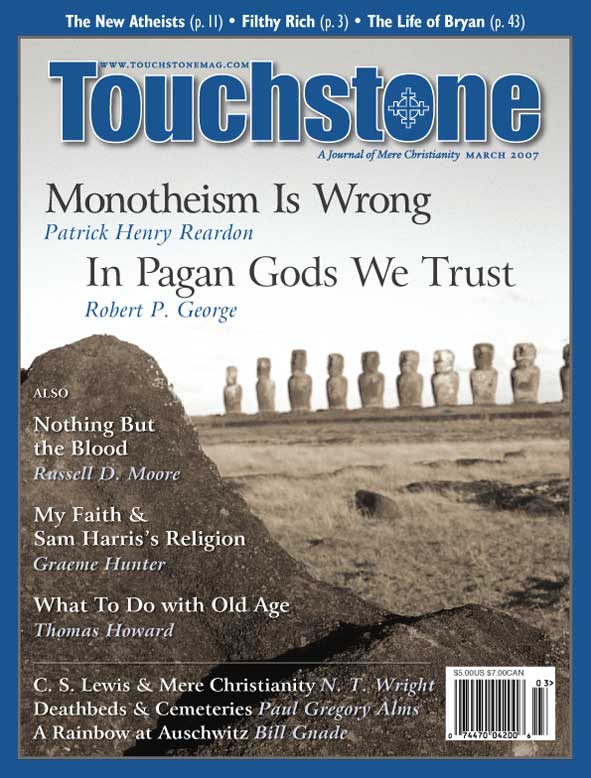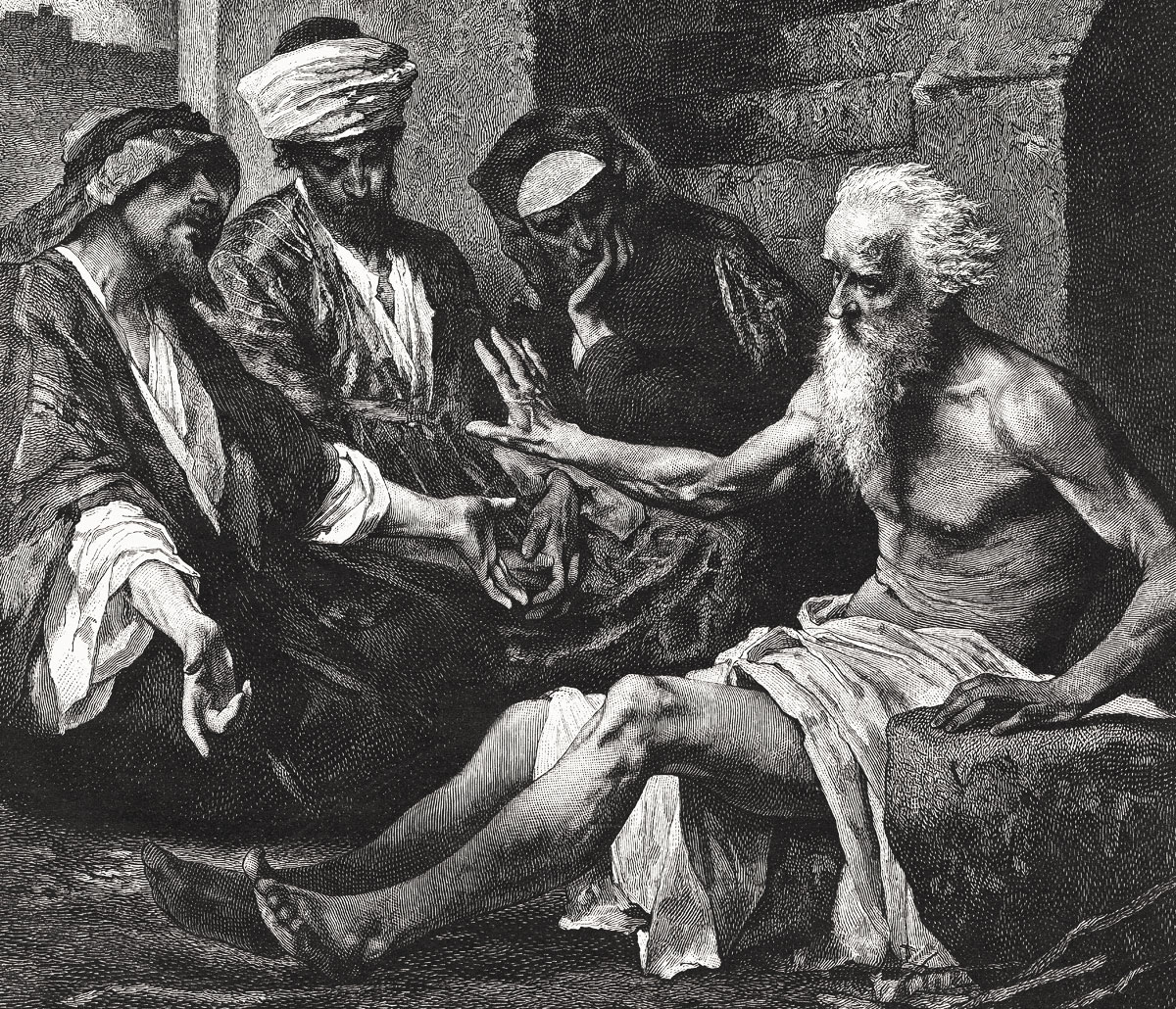Filthy Rich
The Unnoticed Gift of Trickle-Down Decadence
The ancient Romans had a deity for everything, even for the system of channels whereby the daily refuse of a million inhabitants was flushed out of the city. Maybe the goddess Cloaca was worshiped by the rich more than by the poor, since the rich derived most of the benefits from her, and the poor shouldered most of the noisome burden. That’s because the sewers emptied out at the Esquiline Gate.
I’m not sure whether the Romans arranged it so that the end of the sewer line would be located in the poor quarter. More likely, it became the poor quarter because people don’t want to live near a sewer, and will spend money to avoid it.
Emptying the Sewers
Be that as it may, I think that Port Esquiline can serve as an allegory not for the separation of the rich from the poor, but for their disconcerting sameness. Let me be clear about whom I mean here by the “rich.” By our parents’ standards, and by any practical measure of health, nutrition, disposability of time, and ownership of luxuries, most of us in the middle class are rich, and therefore bear the responsibilities of the rich, whether we like it or not.
And our first responsibility is to not bring undue hardship upon the poor. That is, we should go out of our way not to empty our sewers among them—our moral sewers especially.
The rich can afford their vices, for a time anyway; the poor have no such margin for comfort. They are, in fact, endangered by the vices of the rich. I don’t simply mean that the rich man can extort his will from the poor, or wield the law as a club to keep the poor man in his place. He can do worse: He can infect the poor man with his vice, and that may be the quicker way to destroy him.
That’s because the rich set the example for the poor. Their vices attain celebrity; a Casanova or a Don Juan sets the petty rakes of a nation to school. Now the rich can buy their way out of entanglements. They can raise a bastard child, or bribe an offended lady.
Their powdered periwigs and snuffboxes and civet can cast the sweet air of civilization over their ruffian ways; their very debaucheries can sparkle. But when the poor emulate them in vice, as they emulate them in most things, the result is disaster: not a man at the club, mooching a claret from his friends, but a man in the ditch, or behind bars.
So in Dickens we have the miserable corpse-robbing thieves at Old Joe’s pawnshop, and they are but Scrooge himself, and his money-hungry class, shorn of top hat and watch fob and man-of-business etiquette. So in imperial Rome the senatorial class had succumbed to a fatal indolence, ceding to the emperor all authority and responsibility; and the proles in the city flocked to the circuses to quell their boredom in bloodshed.
When my grandparents were children, they looked to the pillars of American society. But even then they looked to them not for strong moral example, but for the diminished thing (a matter of money and manners more than morals) that moral example had already become: “We may be poor,” said one, “but we can at least be clean.”
Anthony Esolen is Distinguished Professor of Humanities at Thales College and the author of over 30 books, including Real Music: A Guide to the Timeless Hymns of the Church (Tan, with a CD), Out of the Ashes: Rebuilding American Culture (Regnery), and The Hundredfold: Songs for the Lord (Ignatius). He has also translated Dante’s Divine Comedy (Random House) and, with his wife Debra, publishes the web magazine Word and Song (anthonyesolen.substack.com). He is a senior editor of Touchstone.
subscription options
Order
Print/Online Subscription

Get six issues (one year) of Touchstone PLUS full online access including pdf downloads for only $39.95. That's only $3.34 per month!
Order
Online Only
Subscription

Get a one-year full-access subscription to the Touchstone online archives for only $19.95. That's only $1.66 per month!
bulk subscriptions
Order Touchstone subscriptions in bulk and save $10 per sub! Each subscription includes 6 issues of Touchstone plus full online access to touchstonemag.com—including archives, videos, and pdf downloads of recent issues for only $29.95 each! Great for churches or study groups.
Transactions will be processed on a secure server.
more on culture from the online archives
more from the online archives
calling all readers
Please Donate
"There are magazines worth reading but few worth saving . . . Touchstone is just such a magazine."
—Alice von Hildebrand
"Here we do not concede one square millimeter of territory to falsehood, folly, contemporary sentimentality, or fashion. We speak the truth, and let God be our judge. . . . Touchstone is the one committedly Christian conservative journal."
—Anthony Esolen, Touchstone senior editor














